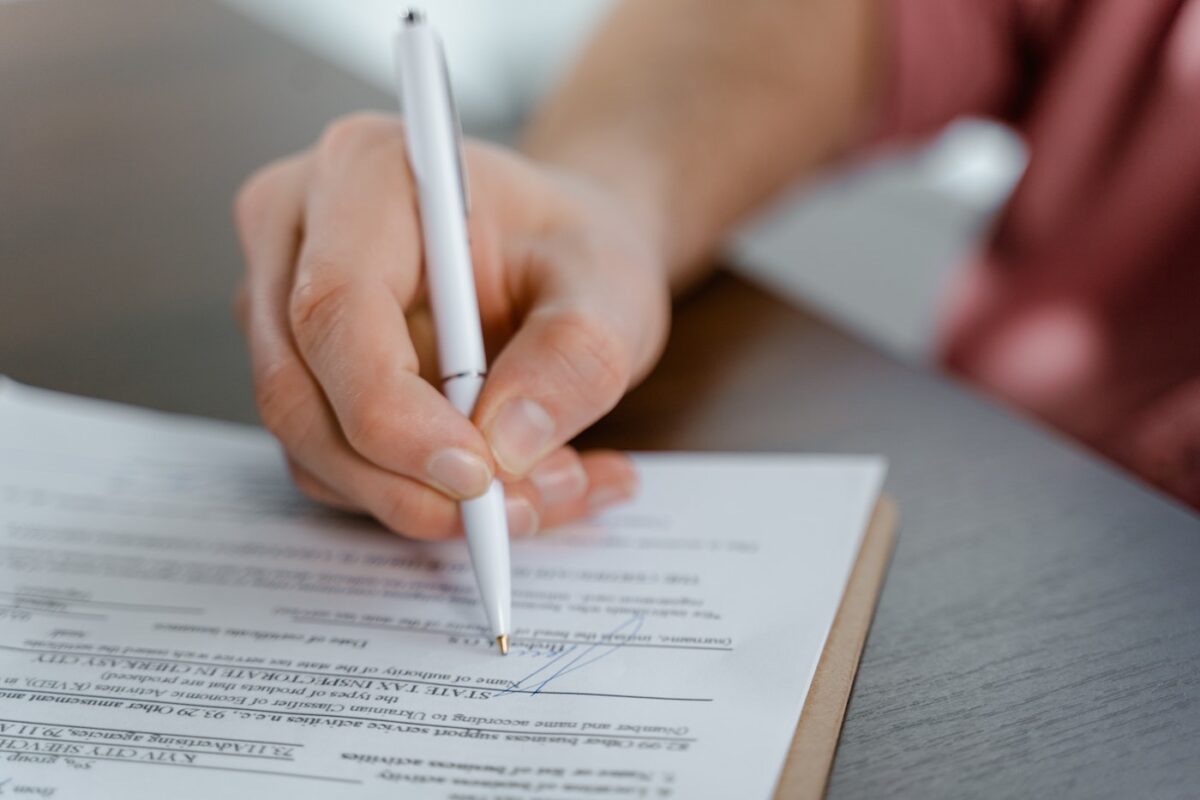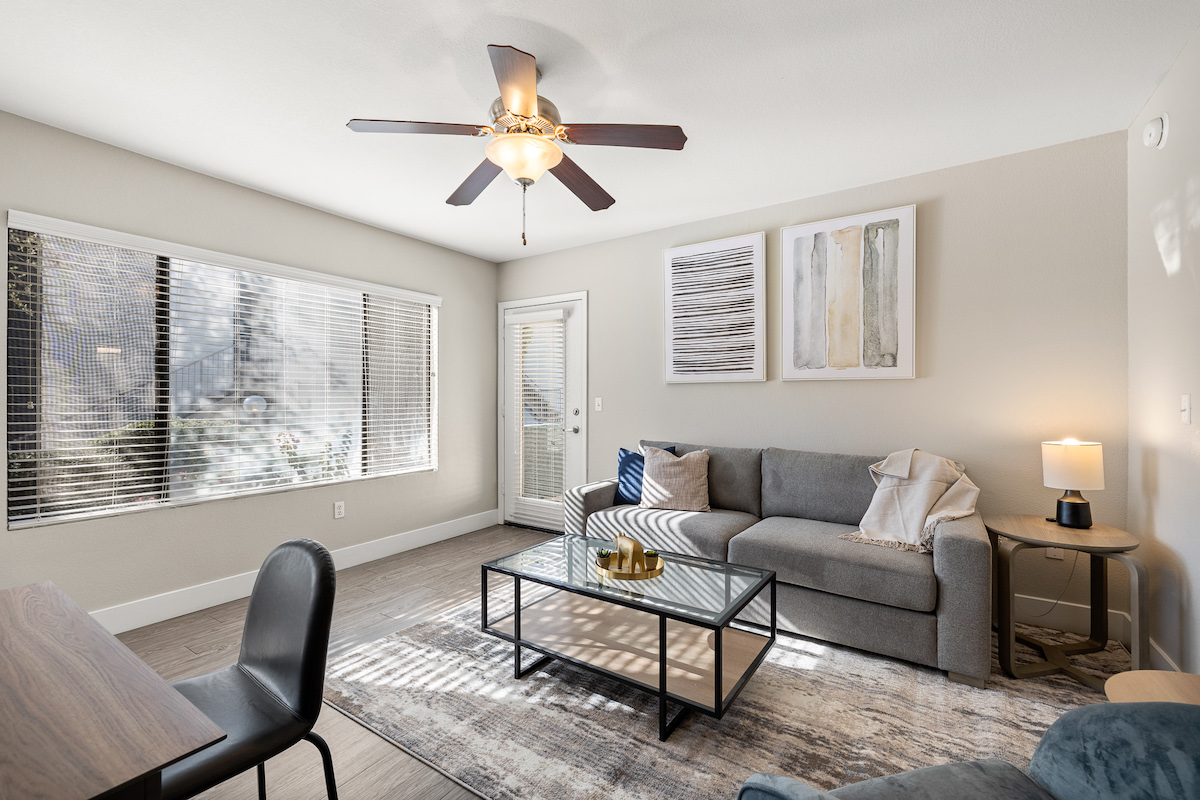
What Is a Security Deposit?

If you’ve been looking for a new apartment, you might have noticed that many landlords charge their tenants a security deposit along with the monthly cost of rent as a condition for moving into the property. This is a one-time fee the tenant pays as a vow that they’ll abide by the lease terms and keep the rental property in good condition.
However, security deposits aren’t always straightforward. As a prospective tenant navigating the rental process, you may have a lot of questions, such as:
- How much can landlords charge for a security deposit?
- How do they come up with that amount?
- What is the money used for?
- Do you get that money back at the end of your lease agreement?
From how much security deposits typically cost to what they’re used for, here’s everything you need to know about security deposits. Let’s get started!
Security deposit definition: What you should know
What is a security deposit? Security deposits—also known as “damage deposits”—are deposits tenants make before renting an apartment that is kept on file throughout the duration of their tenancy in the event that the landlord must pay for substantial fixes to the property caused by the tenant. They’re a common practice among property managers and rental companies because renting can be a high-risk business. From costly property damage to tenants who break leases early, security deposits are one way property managers can protect themselves and their properties financially.
With that said, for tenants, security deposits can seem like an additional expense added to the already costly business of moving. Frequently, this isn’t even the only fee tenants must pay upfront, including:
- Application fee: Many landlords charge prospective tenants a non-refundable fee just to apply to rent the property. This fee covers the cost of things like criminal and background checks and looking into your rental history. On average, you can expect to pay an application fee of anywhere between $40 to $100 as a renter.
- First month’s rent: In most cases, rent is paid in advance, which means that when you move into a new apartment, you’ll have to deposit your first month’s rent before you’re able to move into your new space. Some landlords may want tenants’ last month’s rent on file, too.
- Pet deposits and fees: If you’re bringing any pets with you, your landlord may assess a fee based on the type and size of animal you have. This could be a one-time fee or it could be a monthly payment, depending on your lease terms.
All of these fees and deposits can start adding up quickly. Luckily, tenants who aren’t interested in paying a security deposit are not without rental options. When you rent with Landing, you’ll never have to worry about security deposits or other upfront fees that other landlords might charge you. We never charge security deposits, and with our flexible leases and transfer options, you never have to worry about breaking a lease early—or staying somewhere you don’t love. What could be better?
What are security deposits used for?
Even if you’re familiar with the idea of security deposits, you might not know exactly why they’re required for your apartment or what expenses your property manager is entitled to use that money for.
Essentially, these deposits cover any damage to a rental property that doesn’t include normal wear and tear. In many states, property owners are responsible for cleaning apartments between tenants and ensuring their properties are in a livable condition. That means it’s the landlord’s job to ensure appliances are in good working order and that the apartment is free of mold or any structural damage before they re-rent the place.
As a tenant, you’re responsible for taking care of your rental property for the duration of your lease—and the security deposit is a way that landlords make sure you do. The good news? At the end of your lease, you’re entitled to get your deposit back, provided you’ve upheld your end of the agreement.
Here are some common situations when a landlord might be entitled to keep a deposit:
- Property damage: In situations where a tenant has caused unnecessary damage to an apartment or other rental property beyond ordinary wear and tear, the landlord may use the security deposit to cover the cost of repairs. Such damages might include things like holes in walls, damage to carpets or flooring, broken windows, or damage to appliances.
- Extra cleaning: If you leave an apartment excessively dirty, your landlord may be entitled to use all or some of your deposit to clean the apartment after you move out. Dirty ovens, filthy bedrooms, pet odors, or avoidable plumbing issues are all things that might eat up your security deposit.
- Unpaid rent: If a tenant breaks their lease early or abandons the rental unit, the landlord may keep the deposit to cover the cost of the unpaid rent.
- Other issues: A landlord may keep all or some of your security deposit if you violate other terms of your rental agreement that place an undue financial burden on the landlord. For example, if your lease prohibits you from making cosmetic changes to the property, like painting the walls, the cost of fixing those changes can come from your deposit.
How much can a landlord charge tenants for a security deposit?
Laws and regulations regarding how much landlords are allowed to charge for security deposits vary from state to state, so it’s a good idea to check the laws where you live if you have questions about what a landlord is charging.
That said, many states, like New York, New Hampshire, and Massachusetts, security deposits are not allowed to exceed the amount of a month’s rent for the property in question. Other states like Missouri, Alaska, and Washington, D.C., allow landlords to charge up to two months’ worth of rent for a security deposit. In Connecticut, landlords may charge up to two months’ worth of rent for a security deposit unless the tenant is over 62 years of age.
And still other states—Colorado, Indiana, Iowa, and Florida, among others—don’t place any limits on landlords when it comes to security deposits.
Other factors that might affect your security deposit
Although in many cases security deposits will remain standard from renter to renter, there are a few situations that might change the amount you pay. Here are some common situations that might increase the amount of a security deposit:
- Pets: Many landlords will charge extra fees if you’re a pet owner. Pet fees protect the landlord against damages that your pet might cause, such as ruined floors or carpets or extra cleaning that might be necessary when you move out.
- The specific apartment: In some cases, landlords may charge greater security deposits based on the specific rental property. Properties that have been newly renovated or that feature high-quality amenities might require a larger security deposit.
- Your credit/rental history: If your rental history is a little spotty—for instance, if you have a previous eviction—a landlord might assess an additional fee as further protection against any money they might stand to lose by renting to you.
- Employment history: Even if you have a spotless rental background and excellent credit, landlords might charge a greater security deposit based on your income level. This is especially true if the cost of rent represents a substantial portion of your income.
When assessing a security deposit, property management companies may also take into account a renter’s employment history, income, and criminal background.
What happens to the security deposit?
At the end of your lease, you’re entitled to getting all or some of your security deposit back—provided that you haven’t caused any damage to the property and have otherwise abided by the terms of your agreement, such as paying rent on time and satisfying community requirements.
Depending on your rental agreement, you may be entitled to your security deposit as a cash or check payment. In other cases, your landlord may give you the option of putting your security deposit toward your last month’s rent. Just make sure you leave a forwarding address so that your property management organization knows where to send your money once you move.
If money is deducted from your deposit and you aren’t sure why, be sure to ask your rental company for an itemized list of expenses. In extreme cases when your security deposit is being withheld without cause, you may need to write a demand letter or even head to small claims court.
Rent a great apartment—without the extra fees—with Landing
It’s no secret that moving can get expensive. Once you’ve paid all those pesky application fees, the first month’s rent, and any other fees associated with finding a new apartment, there might not be much room left over in your budget for pricey security deposits.
Wouldn’t it be nice if you could move into an apartment you love without having to worry about a ton of extra fees and expenses?
That’s where Landing comes in. At Landing, we’re revolutionizing the way we live in apartments by making apartment renting easier than ever. And we’re doing that by eliminating the barriers between you and the apartment of your dreams—starting with expensive security deposits.
When you join Landing, you’ll get access to our nationwide network of quality apartments, all of which are available without security deposits. With Landing, renting an apartment has never been easier. Ready to discover how simple apartment living can be? Join us today to find your perfect Landing.









